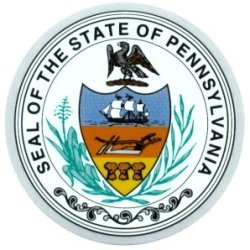Pennsylvania iGaming Industry Could Help Plug Budget Deficit

Last month, Pennsylvania took a giant step towards legalizing online gambling after HB 649 was approved by the Pennsylvania Gaming Oversight Committee. Consequently, the legislation can now officially be voted upon either as a piece of standalone legislation, or alternatively as part of the state’s 2016 budget. This week, both the Pennsylvania Senate and its House Appropriations Committee then submitted separate plans seeking to plug the $1.85 billion deficit in the state’s roughly $30 billion budget, and while the House’s version contains provisions which supports the language of HB 649, the Senate’s budget plan makes no mention of internet gambling at all.
Nevertheless, the Senate’s budget proposal of $30.8 billion is around $500 million more than the one envisaged by the House, with the need to find extra funds raising the prospect of both bodies coming together to reach some sort of compromise. As Senate Majority Leader Jake Corman explained to philly.com this week:
“Maybe we should have been in this spot in July. But we need to get something that we can all sign and pass [so] we can get this thing over with.”
With the pressing need to bring the 5 month long budget standoff to a close, just how much would a regulated online gambling industry actually generate for the Keystone State?
Revenue From Licensing Fees
One argument against online gambling legalization has been that states like New Jersey and Delaware have only seen modest participation in games like online poker due to restrictions in population size. Nevertheless, Pennsylvania’s decision to legalize iGaming is certain to bring in revenue in the form of licensing fees. Once the bill passes, casinos and online operators will be able to begin applying for licenses after 90 days. Licensees will have to pay an $8 million fee in order to launch online casinos in Pennsylvania. Currently, there are 12 casinos operating in the state, meaning that Pennsylvania could earn upwards of $64 million from licensing.
In addition to the fees that casinos must pay, vendors who supply iGaming interfaces, like PokerStars, will have to pay $2 million licensing fees. Depending on how many vendors ultimately choose to apply, Pennsylvania could bring in more than $100 million just from licensing alone.
First Year Tax Revenue
With PayPal now beginning to accept payments for iGaming, and PokerStars now cleared to operate in New Jersey, it’s likely that Pennsylvania will be successful in attracting a significant number of online gamblers. Current legislation requires casinos to pay a 14 percent tax on gross gambling revenues generated by their online sites. Based on the size of Pennsylvania’s population and the revenues brought in by other states where iGaming is legal, online casinos could bring in $121 to $129 million during the first year, with an additional $39 to $45 million possibly generated by online poker.
Revenues Going Forward
Industry experts estimate that Pennsylvania will likely be able to collect taxes on revenues of roughly $202 million from iGaming the second year after HB 649 passes. By the fifth year, estimates are that the Pennsylvania iGaming industry will be consistently earning around $270 million in online casinos and poker revenues. This means that the state would receive roughly $37.8 million in tax revenue annually.
Benefits of Partnering with New Jersey
Many industry experts believe that Pennsylvania would be well-served to enter into a liquidity sharing partnership with the neighboring state of New Jersey. By pooling together players from both states, games like fast-fold variants and non-no limit holdem games would become more feasible, and there would be more of an opportunity for large tournaments to attract players.
Looking Ahead
It’s important to note that there is a second online gaming bill being considered in Pennsylvania, SB 900, which has a $10 million licensing fee and a 54 percent tax rate. Most experts agree that HB 649 is the more appealing option as it is more likely to attract operators and casinos. Meanwhile, as Pennsylvania draws closer to devising a practical way of funding its budget, Rep. John Payne, the sponsor of HB 649, said that if no provision for online gambling was included in the state’s budget for fiscal year 2015/16, then he would continue trying to drum up support for iGambling legalization next year.









